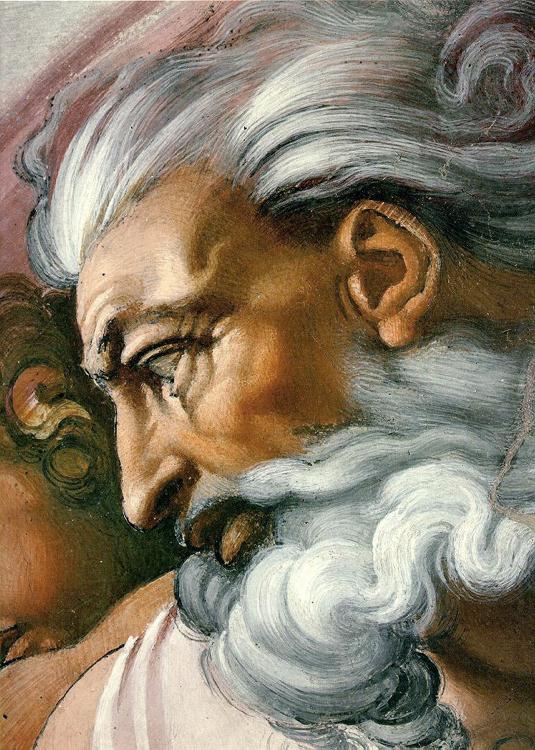The Abrahamic faiths are united by their worship of a deity known as Allah in Muslim traditions and Yahweh in Judeo-Christian ones. A logical starting point in our exploration is therefore the origins of this deity, who shall henceforth be referred to as the God of Abraham (GoA). The first important point is that the GoA is a High God – in fact the highest of Gods – as within the Abrahamic religions (Christianity, Judaism and Islam) worship of any other deity is considered a heresy. Let’s unpack that statement further.
A High God is defined as a deity who is utterly transcendent – that is that they are worshipped as omnipotent creators existing beyond space and time [1]. The idea of a High God first evolved during the Neolithic Revolution when agriculture was adopted by many of the world’s peoples. Simplifying bluntly the arguments of Peoples and Marlowe [1], crop surpluses from farming meant that not everyone was required to spend their lives gathering food. This permitted the emergence of a ruling class who had time for education but depended on tribute from farmers for survival. In need of a way to convince their subjects to offer up these crop surpluses, the upper classes associated themselves with High Gods; affirming that any tributes they received would also bring glory to the creator deity.
In many agricultural societies, this creator deity/High God was associated with the sky. As such, he was often conceived as living on the clouds and controlling atmospheric conditions such as sunlight, thunder and rain. In fact, a Sky God may have been present in almost all Indo-European mythologies – typical examples include Thor (Norse), Jupiter (Roman) and Zeus (Greek) [2]. The Sky God of a Semitic people known as the Canaanites was called El (cognate of Aramaic rendered Elāh). He was believed to head a pantheon of Gods which included 77 of his sons. One of the sons – Yahweh – came to be held in particularly high esteem by a Canaanite tribe known as the Israelites. By the 7th Century BCE, they had conflated Yahweh with El, and adopted him as their patron. At the same time, the Israelites deemed the worship of any other God heretical [3].
Yahweh first received his association with Abraham through stories told orally in the first millennium BCE (and later codified in the Torah). According to these accounts, Yahweh revealed himself to Abraham and called him to establish a nation in Canaan (modern day Palestine). By following God’s commandments to leave Mesopotamia, sacrifice his son, and then find a wife for him, Abraham laid the foundations for Canaan (Genesis 12-25). Although some 20th century academics argued that the story might have some truth to it [4], modern scholarship generally views Abraham as a mythological figure and the Genesis narrative as a reflection of concerns in Israel in the first century BCE [5][6]. What exactly those concerns were, however, is still subject to scholarly debate [7].
The case of Abraham’s successors is arguably more clear-cut: the stories of Moses and Isaiah are a reflection of the Israelites’ deepening relationship with Yahweh. Indeed, the decalogue narrative in which Moses receives the ten commandments (Exodus 20) may be the first ever instance of a religious tale in which morality is presented as coming straight from the mouth of the divine [8]. Arguably, it is this account that first transforms Yahweh into the highest of gods by making clear that not only is He creator of the world, but also the only source of what is right. This development reaches its logical endpoint in second Isaiah when Yahweh proclaims, “apart from me there is no God” (Isaiah 44:6). With these words, monotheism is born: it is now clear to the Israelites that Yahweh should be viewed not just as the only god worthy of praise, but as the only God, full stop [8]. In time, this realisation will also form the basis of Christianity, and Islam, currently the two largest religions in the world. Stay tuned for a follow up article(s) in which their rise, and divergence from Judaism, will be explored.
Through it all, however, keep in mind that the GoA was “born” into an obscure agricultural setting in the Near East, amidst echoes of deities and patriarchs. Eventually he would become the subject of widespread veneration. Remind you of a certain story by any chance?





Laisser un commentaire
Vous devez vous connecter pour publier un commentaire.